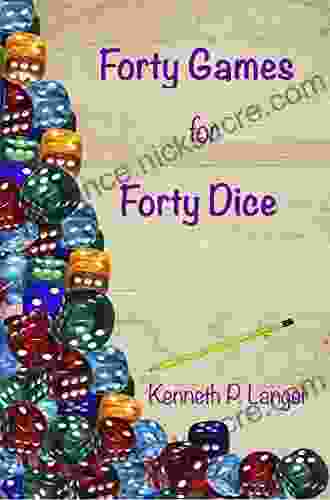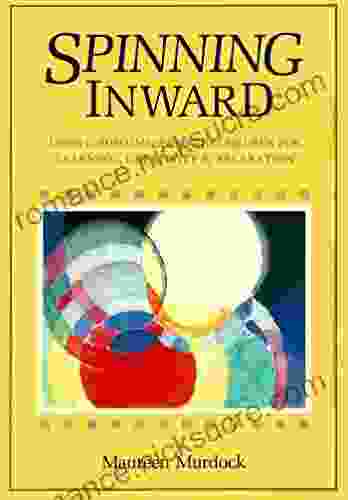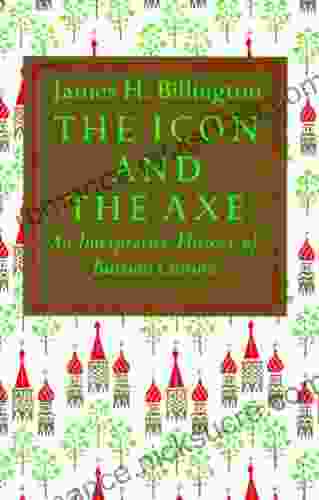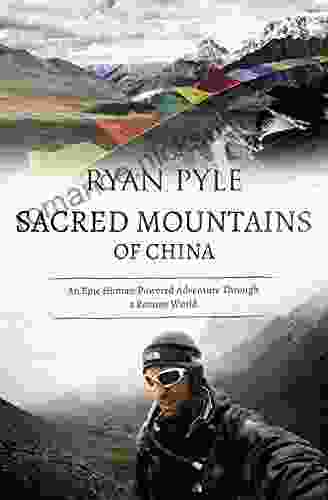An Interpretative History of Russian Culture: Exploring the Genesis and Evolution of a Rich and Diverse Civilization

4.6 out of 5
| Language | : | English |
| File size | : | 5265 KB |
| Text-to-Speech | : | Enabled |
| Screen Reader | : | Supported |
| Enhanced typesetting | : | Enabled |
| Print length | : | 868 pages |
Russian culture is a rich and diverse tapestry woven from the threads of many different civilizations. It is a culture that has been shaped by its geography, its history, and its people. In this article, we will explore the genesis and evolution of Russian culture, from its origins in the Kievan Rus' to its modern-day manifestations.
The Kievan Rus'
The Kievan Rus' was the first major state in Eastern Europe. It was founded in the 9th century by the Varangians, a group of Vikings from Scandinavia. The Kievan Rus' quickly grew into a powerful empire, and its culture was a blend of Slavic, Byzantine, and Viking influences.
One of the most important cultural developments of the Kievan Rus' was the adoption of Christianity. In 988, Grand Prince Vladimir I of Kiev converted to Christianity, and he made it the official religion of the state. The adoption of Christianity had a profound impact on Russian culture, and it led to the development of a new style of art and architecture that was heavily influenced by Byzantine models.
The Mongol Invasion
In the 13th century, the Kievan Rus' was invaded by the Mongols. The Mongols were a nomadic people from Central Asia, and they quickly conquered most of the Russian principalities. The Mongol invasion had a devastating impact on Russian culture, and many of the major cities were destroyed. However, the Mongols also introduced new ideas and technologies to Russia, and they helped to lay the foundations for the future development of Russian culture.
The Rise of Muscovy
In the 14th century, the Grand Duchy of Moscow began to emerge as the dominant power in Russia. Moscow was able to defeat its rivals and expand its territory, and it eventually became the center of the Russian state. The rise of Muscovy led to a new flowering of Russian culture.
One of the most important cultural developments of the Muscovite period was the development of a new style of architecture. This style, known as Muscovite Baroque, was characterized by its elaborate decoration and its use of colorful tiles. Muscovite Baroque architecture can be seen in many of the churches and monasteries that were built in Russia during this period.
The Romanov Dynasty
In 1613, the Romanov dynasty came to power in Russia. The Romanovs ruled Russia for over 300 years, and they oversaw a period of great cultural development. During the Romanov period, Russia experienced a number of important cultural changes, including the of Western ideas and technologies.
One of the most important cultural developments of the Romanov period was the development of a new style of literature. This style, known as Russian realism, was characterized by its focus on everyday life and its use of realistic language. Russian realism was influenced by Western literary movements, but it also had its own unique character.
The Soviet Union
In 1917, the Russian Revolution occurred, and the Soviet Union was established. The Soviet Union was a communist state, and it had a profound impact on Russian culture. During the Soviet period, many aspects of Russian culture were suppressed, and new, socialist forms of culture were promoted.
One of the most important cultural developments of the Soviet period was the development of a new style of art. This style, known as socialist realism, was characterized by its focus on the heroic struggle of the working class. Socialist realism was used to glorify the Soviet Union and its leaders, and it was the only style of art that was allowed to be produced.
The Post-Soviet Era
In 1991, the Soviet Union collapsed, and the Russian Federation was established. The post-Soviet era has been a time of great cultural change in Russia. Many of the restrictions that were imposed on culture during the Soviet period have been lifted, and new forms of culture have emerged.
One of the most important cultural developments of the post-Soviet era has been the revival of traditional Russian culture. This revival has led to a new appreciation for Russian art, music, literature, and dance. In addition, new forms of culture have emerged, such as Russian rock music and postmodern art.
Russian culture is a rich and diverse tapestry that has been shaped by its geography, its history, and its people. It is a culture that has experienced many changes over the centuries, but it has always retained its unique character. Today, Russian culture is a vibrant and dynamic force that is constantly evolving. It is a culture that is sure to continue to make important contributions to the world.
4.6 out of 5
| Language | : | English |
| File size | : | 5265 KB |
| Text-to-Speech | : | Enabled |
| Screen Reader | : | Supported |
| Enhanced typesetting | : | Enabled |
| Print length | : | 868 pages |
Do you want to contribute by writing guest posts on this blog?
Please contact us and send us a resume of previous articles that you have written.
 Fiction
Fiction Non Fiction
Non Fiction Romance
Romance Mystery
Mystery Thriller
Thriller SciFi
SciFi Fantasy
Fantasy Horror
Horror Biography
Biography Selfhelp
Selfhelp Business
Business History
History Classics
Classics Poetry
Poetry Childrens
Childrens Young Adult
Young Adult Educational
Educational Cooking
Cooking Travel
Travel Lifestyle
Lifestyle Spirituality
Spirituality Health
Health Fitness
Fitness Technology
Technology Science
Science Arts
Arts Crafts
Crafts DIY
DIY Gardening
Gardening Petcare
Petcare S L Watson
S L Watson Dan Reeder
Dan Reeder Monique Joiner Siedlak
Monique Joiner Siedlak Sarah Van Gelder
Sarah Van Gelder Gregory A Loew
Gregory A Loew Gary Mccord
Gary Mccord Valerie Ann Worwood
Valerie Ann Worwood Richard Dewitt
Richard Dewitt Peterson S
Peterson S Mariamelys Yanez
Mariamelys Yanez Stephanie Clarke
Stephanie Clarke James Van Praagh
James Van Praagh Jay Mccullough
Jay Mccullough Silvanus P Thompson
Silvanus P Thompson Yuxi Hayden Liu
Yuxi Hayden Liu Matt Heid
Matt Heid Hakim Isler
Hakim Isler Mike Horn
Mike Horn Esther Joos Esteban
Esther Joos Esteban Jessica Thom
Jessica Thom David J Helfand
David J Helfand Mandee Heller Adler
Mandee Heller Adler Paul Andrew Asmuth
Paul Andrew Asmuth Frank Zane
Frank Zane Jeff Steiner
Jeff Steiner Deb Curtis
Deb Curtis Joanna Sayago Golub
Joanna Sayago Golub Dennis G Zill
Dennis G Zill Tomi Adeyemi
Tomi Adeyemi Mateo Sol
Mateo Sol Graham Uney
Graham Uney James Cordrey
James Cordrey Ken Alder
Ken Alder Capers Jones
Capers Jones Steve Burrows
Steve Burrows Eric Mayost
Eric Mayost Jenn Garbee
Jenn Garbee Hannah Fry
Hannah Fry David And Avi Epstein
David And Avi Epstein Deanna Pecaski Mclennan
Deanna Pecaski Mclennan Tamara Tobias
Tamara Tobias Jolene Brighten
Jolene Brighten Db King
Db King Greg Vinall
Greg Vinall Sam Sheridan
Sam Sheridan Frank Joseph
Frank Joseph Kevin Carr
Kevin Carr Reid Oslin
Reid Oslin Erika Buenaflor M A J D
Erika Buenaflor M A J D Meg Jay
Meg Jay Dr N Rama Chandran
Dr N Rama Chandran Karen M Masterson
Karen M Masterson Reda Waaziz
Reda Waaziz Sharon Ward
Sharon Ward Dr Ray Makar
Dr Ray Makar Debbie Madson
Debbie Madson Justin M Jacobs
Justin M Jacobs Johannes Riffelmacher
Johannes Riffelmacher Samuel Garcia
Samuel Garcia Albert Einstein
Albert Einstein Baby Professor
Baby Professor C Osvaldo Gomez
C Osvaldo Gomez Julie Johnson
Julie Johnson Charles H Townes
Charles H Townes Toney Allman
Toney Allman Clint Orr
Clint Orr Kenny Moore
Kenny Moore R K Davenport
R K Davenport Mary E Hagle
Mary E Hagle Jay L Devore
Jay L Devore Kara Thomas
Kara Thomas Travis Morris
Travis Morris Ellen Hopkins
Ellen Hopkins Mark S Kinzer
Mark S Kinzer Joy Goodwin
Joy Goodwin Martina Mcbride
Martina Mcbride Susie Allison
Susie Allison Nystce Exam Secrets Test Prep Team
Nystce Exam Secrets Test Prep Team Graham Hancock
Graham Hancock Pete Fromm
Pete Fromm Francis Borceux
Francis Borceux Lee Savage
Lee Savage Christopher Ryan
Christopher Ryan Helen Savore
Helen Savore Dena Merriam
Dena Merriam Abraham Flexner
Abraham Flexner Kindle Edition
Kindle Edition Cathy O Neil
Cathy O Neil Ken Blanchard
Ken Blanchard Clyde E Fant
Clyde E Fant Tim J Wise
Tim J Wise Nicole R Taylor
Nicole R Taylor Dr Alison Dibarto Goggin
Dr Alison Dibarto Goggin Lane Pederson
Lane Pederson Jawanza Kunjufu
Jawanza Kunjufu Jeremy Laszlo
Jeremy Laszlo Mario Beauregard
Mario Beauregard Lisha Epperson
Lisha Epperson Diane Ackerman
Diane Ackerman Lauren Algeo
Lauren Algeo Marc Lewis
Marc Lewis Paul Trammell
Paul Trammell Phil Bourjaily
Phil Bourjaily Pete Goss
Pete Goss Winslow Tudor
Winslow Tudor Stephen Cleary
Stephen Cleary Gretchen Reynolds
Gretchen Reynolds Richard Conniff
Richard Conniff Jamie Marich
Jamie Marich Nancy Carter Crump
Nancy Carter Crump David M Levine
David M Levine Matt Landry
Matt Landry Caitlin Dean
Caitlin Dean Gary Chapman
Gary Chapman Charles Soule
Charles Soule Dr Harmony
Dr Harmony Tim Freke
Tim Freke Rick Burgess
Rick Burgess Lucy Ruddle
Lucy Ruddle Sean Moloney
Sean Moloney Marina Umaschi Bers
Marina Umaschi Bers Jon Haws
Jon Haws Course Hero
Course Hero Kaplan Test Prep
Kaplan Test Prep Edward Dutton
Edward Dutton Eva Maria Zurhorst
Eva Maria Zurhorst Dedrick L Moone
Dedrick L Moone John M Taylor
John M Taylor Catherine Oxenberg
Catherine Oxenberg Tamsen Butler
Tamsen Butler Roman Dial
Roman Dial Christopher Boehm
Christopher Boehm Terry M Redding
Terry M Redding Tetsu Kariya
Tetsu Kariya John Mccannon
John Mccannon Kerry Irving
Kerry Irving R Philip Bouchard
R Philip Bouchard Michael Sandler
Michael Sandler Julie Taylor
Julie Taylor Alex Berenson
Alex Berenson Mark Zegarelli
Mark Zegarelli Ravin Kumar
Ravin Kumar William P Berlinghoff
William P Berlinghoff Karen J Bun
Karen J Bun Shelly Westerhausen
Shelly Westerhausen Lucy Rees
Lucy Rees Dave Buscema
Dave Buscema Jennifer Hallissy
Jennifer Hallissy Maureen Murdock
Maureen Murdock Mercedes Kirkel
Mercedes Kirkel Naomi Chunilal
Naomi Chunilal H Keith Melton
H Keith Melton Rick Monday
Rick Monday Rachel Ignotofsky
Rachel Ignotofsky Edith Rogovin Frankel
Edith Rogovin Frankel A R Vasishtha
A R Vasishtha Marcelo Gleiser
Marcelo Gleiser David Attenborough
David Attenborough Phillip Hoose
Phillip Hoose Chester Ismay
Chester Ismay Jessica Berger Gross
Jessica Berger Gross Mockingbird The Mincing
Mockingbird The Mincing Jennifer Ward
Jennifer Ward Jordon Greene
Jordon Greene Nick O Hern
Nick O Hern Hugh Neill
Hugh Neill Tony Diterlizzi
Tony Diterlizzi Helen Saul Case
Helen Saul Case Michael Bamberger
Michael Bamberger Karl White
Karl White Eriko Sato
Eriko Sato Walter Sosa Escudero
Walter Sosa Escudero Richard Hasse
Richard Hasse Cindy Post Senning
Cindy Post Senning Montana Ross
Montana Ross Orangepen Publications
Orangepen Publications Robin Mckinley
Robin Mckinley Robert Yang
Robert Yang Diana L Paxson
Diana L Paxson Nadia Durrani
Nadia Durrani Ibram X Kendi
Ibram X Kendi Steve Mcgregor
Steve Mcgregor Monica Swanson
Monica Swanson Nicholas Bjorn
Nicholas Bjorn Guy Fieri
Guy Fieri Darren Levine
Darren Levine Catherine Legrand
Catherine Legrand Megan Whalen Turner
Megan Whalen Turner Deirdre Pitney
Deirdre Pitney Carlos Pestana
Carlos Pestana Ilia Blandina
Ilia Blandina Eamon Duffy
Eamon Duffy Charles Frederic Chapman
Charles Frederic Chapman Ken Warner
Ken Warner Phil Cavell
Phil Cavell Nicholas Tomalin
Nicholas Tomalin General
General Cheikh Anta Diop
Cheikh Anta Diop Linda E Mccuistion
Linda E Mccuistion Donna Williams
Donna Williams Ruth F Craven
Ruth F Craven Celine Clive
Celine Clive Creek Stewart
Creek Stewart Jane E Drichta
Jane E Drichta Morton D Davis
Morton D Davis Oludamini Ogunnaike
Oludamini Ogunnaike Patricia Irwin Johnston
Patricia Irwin Johnston Carolines Angels
Carolines Angels Sigmund Freud
Sigmund Freud Don Holbrook
Don Holbrook Michael Daugherty
Michael Daugherty Carmen Davenport
Carmen Davenport Michael Walker
Michael Walker Stedman Graham
Stedman Graham Dolly Chugh
Dolly Chugh Karl A Pillemer
Karl A Pillemer Chris Santella
Chris Santella Vincent Chidindu Asogwa
Vincent Chidindu Asogwa Judah Phillips
Judah Phillips Rhythm Aida
Rhythm Aida Wendy Hinman
Wendy Hinman Dominic O Brien
Dominic O Brien Sergey K Aityan
Sergey K Aityan Karyn D Hall
Karyn D Hall Derek J Flores R N
Derek J Flores R N John Blair
John Blair Magdalena Jackowska
Magdalena Jackowska Nancy L Carr
Nancy L Carr Pamela S Turner
Pamela S Turner Sarah Hendrickx
Sarah Hendrickx E Ink Utilizer
E Ink Utilizer Paul Tough
Paul Tough Brandi Chastain
Brandi Chastain Sheena Iyengar
Sheena Iyengar Jason Scotts
Jason Scotts Jeffrey Hoffstein
Jeffrey Hoffstein Emily M Leonard
Emily M Leonard Leslie R Schover
Leslie R Schover Clementine Paddleford
Clementine Paddleford Worth Books
Worth Books Makiia Lucier
Makiia Lucier Marguerite Mary Rigoglioso
Marguerite Mary Rigoglioso Raymond G Miltenberger
Raymond G Miltenberger Ava Archer
Ava Archer Katie Mangelsdorf
Katie Mangelsdorf Christopher Ives
Christopher Ives Cambridge Rory
Cambridge Rory Janet Evans
Janet Evans Jerry Dennis
Jerry Dennis Gene Luen Yang
Gene Luen Yang Carlos Magdalena
Carlos Magdalena Scott Strother
Scott Strother Linda Gassenheimer
Linda Gassenheimer Rich Dossan
Rich Dossan Jill Boucher
Jill Boucher Michael R Shea
Michael R Shea Maryana Vollstedt
Maryana Vollstedt J K Sheindlin
J K Sheindlin Diane Larsen Freeman
Diane Larsen Freeman Mark L Prophet
Mark L Prophet Frederick Douglass Opie
Frederick Douglass Opie Jonathan Malesic
Jonathan Malesic Meg Cabot
Meg Cabot Paul Bellow
Paul Bellow James Stewart
James Stewart John Cartwright
John Cartwright Sadie Radinsky
Sadie Radinsky Charles Edward Chapel
Charles Edward Chapel Varg Freeborn
Varg Freeborn Lauren Mcduffie
Lauren Mcduffie Jeremy Keeshin
Jeremy Keeshin Maxim Starchenko
Maxim Starchenko Judy Sierra
Judy Sierra Carol Anderson
Carol Anderson Mohammed Musthafa Soukath Ali
Mohammed Musthafa Soukath Ali Nicola Yoon
Nicola Yoon Mark Stewart
Mark Stewart Stian Christophersen
Stian Christophersen Randy Woodley
Randy Woodley Michael A Tompkins
Michael A Tompkins Marie T Banich
Marie T Banich Rob Iliffe
Rob Iliffe Dan Hamilton
Dan Hamilton Jack Whyte
Jack Whyte James Weldon Johnson
James Weldon Johnson Jon Peterson
Jon Peterson Jim Ross
Jim Ross Michael Whitehead
Michael Whitehead Patricia Raybon
Patricia Raybon Michel Boivin
Michel Boivin Educational Testing Service
Educational Testing Service Kate Chenery Tweedy
Kate Chenery Tweedy Jacob Teitelbaum
Jacob Teitelbaum Gabrielle Douglas
Gabrielle Douglas Shari Y Manning
Shari Y Manning Xiran Jay Zhao
Xiran Jay Zhao Mark Harmon
Mark Harmon Jason Fried
Jason Fried Emily Lowry
Emily Lowry Jon Sterngass
Jon Sterngass Dagogo Altraide
Dagogo Altraide Catherine Carrigan
Catherine Carrigan Scott Weidensaul
Scott Weidensaul William Kennedy
William Kennedy J Andrew Royle
J Andrew Royle Robert Allans
Robert Allans Darrell Bricker
Darrell Bricker Gary L Greenwald
Gary L Greenwald Martin Hall
Martin Hall Dr Richard Smith
Dr Richard Smith Jessica Rohrer
Jessica Rohrer Daniel Zwillinger
Daniel Zwillinger Jules Wake
Jules Wake Alejandro Sequera
Alejandro Sequera Harold Anderson
Harold Anderson Schalk Holloway
Schalk Holloway Josh Kirchner
Josh Kirchner Stephen Brennan
Stephen Brennan Rachelle Zukerman
Rachelle Zukerman Elizabeth Warnock Fernea
Elizabeth Warnock Fernea Lenka Peterson
Lenka Peterson David Stanley
David Stanley Matthew Fox
Matthew Fox R F Egerton
R F Egerton Emily Lammers
Emily Lammers Henry E Mejia
Henry E Mejia Wayne Evans
Wayne Evans Marilee Sprenger
Marilee Sprenger Lisa Kenney
Lisa Kenney Krishna Godhania
Krishna Godhania Vanessa Len
Vanessa Len Joanne Limburg
Joanne Limburg Jenna Gensic
Jenna Gensic Tashie Bhuiyan
Tashie Bhuiyan 1st Edition Kindle Edition
1st Edition Kindle Edition 1st Ed 2019 Edition Kindle Edition
1st Ed 2019 Edition Kindle Edition Morgan Rice
Morgan Rice Gooseberry Patch
Gooseberry Patch Nicholas R Finamore
Nicholas R Finamore Yossi Ghinsberg
Yossi Ghinsberg Corinne Maier
Corinne Maier Lori L Tharps
Lori L Tharps Sarah Marquis
Sarah Marquis Tom Coyne
Tom Coyne Christopher G Fairburn
Christopher G Fairburn Cecil B Hartley
Cecil B Hartley Rachel Russ
Rachel Russ Shefali Tsabary
Shefali Tsabary Blake Healy
Blake Healy Carl Miller
Carl Miller Louise Davidson
Louise Davidson Ian Stewart
Ian Stewart Martin Mahner
Martin Mahner Nicole Unice
Nicole Unice Bonnie Zieman
Bonnie Zieman Andrew Hacker
Andrew Hacker Molly Wizenberg
Molly Wizenberg D Enette Larson Meyer
D Enette Larson Meyer Igor Dudukchan
Igor Dudukchan Mike Clelland
Mike Clelland Rachael Scdoris
Rachael Scdoris Emma Jane Unsworth
Emma Jane Unsworth Seth Godin
Seth Godin Josh Sundquist
Josh Sundquist Patrick Vinton Kirch
Patrick Vinton Kirch Danielle Keil
Danielle Keil Colin Gordon
Colin Gordon Catherine S Gregory
Catherine S Gregory James Lawrence Powell
James Lawrence Powell Christopher M Kelty
Christopher M Kelty Lorraine Allman
Lorraine Allman Platinum Creation
Platinum Creation Stephen Harrison
Stephen Harrison Marc Lipson
Marc Lipson Jen L Grey
Jen L Grey Rita Carter
Rita Carter Suzanne Welander
Suzanne Welander Wendy M Reinke
Wendy M Reinke Om Krishna Uprety
Om Krishna Uprety Rebecca Anne Bailey
Rebecca Anne Bailey John Sandford
John Sandford Pat Harvey
Pat Harvey John Green
John Green Rachel Johnson Greer
Rachel Johnson Greer Rick Townsend
Rick Townsend Christine Conners
Christine Conners Oliver Sacks
Oliver Sacks Lilia Tarawa
Lilia Tarawa Daniel G Amen
Daniel G Amen Maria Del Russo
Maria Del Russo Jason Reynolds
Jason Reynolds Scott Murr
Scott Murr Jon R Lindsay
Jon R Lindsay Thomas Celentano
Thomas Celentano Pardis Mahdavi
Pardis Mahdavi Robin Arzon
Robin Arzon Conrad Goeringer
Conrad Goeringer Nicole Santiago
Nicole Santiago Judy Gelman
Judy Gelman Joanne Mcneil
Joanne Mcneil Lyle D Broemeling
Lyle D Broemeling Stephen Voltz
Stephen Voltz Katherine Roberts
Katherine Roberts Carmen Viktoria Gamper
Carmen Viktoria Gamper David Estes
David Estes Tomoko Fuse
Tomoko Fuse Oliver T Spedding
Oliver T Spedding Ernest Holmes
Ernest Holmes Jon Muller
Jon Muller George Gamow
George Gamow Rachelle Doorley
Rachelle Doorley Shea Ernshaw
Shea Ernshaw Danya Kukafka
Danya Kukafka Dana Trentini
Dana Trentini Candace Couch
Candace Couch Marilyn J Hockenberry
Marilyn J Hockenberry Mark Levi
Mark Levi David Mcgriffy
David Mcgriffy Rick Ackerly
Rick Ackerly Steve Raymond
Steve Raymond Ryan Pyle
Ryan Pyle Mike Sheridan
Mike Sheridan Catherine Ann Clemett
Catherine Ann Clemett H L Mencken
H L Mencken Jack Canfield
Jack Canfield Michael Pearl
Michael Pearl Joel A Rippel
Joel A Rippel Dan Sheeks
Dan Sheeks D Levesque
D Levesque Confident Golfer
Confident Golfer Stevan Harrell
Stevan Harrell Donna Shaw
Donna Shaw Kenneth P Langer
Kenneth P Langer Lynn Lilly
Lynn Lilly Rev Cain
Rev Cain John Durant
John Durant Chris Jake
Chris Jake Lee Feinswog
Lee Feinswog Laurie Halse Anderson
Laurie Halse Anderson Lynn Mann
Lynn Mann Zainab Jagot Ahmed
Zainab Jagot Ahmed Steve Colgate
Steve Colgate Oscar Levin
Oscar Levin Summary Genie
Summary Genie David Hicks
David Hicks Muhammad Ali
Muhammad Ali Konstantinos Mylonas
Konstantinos Mylonas John D Gordon
John D Gordon Russ Eanes
Russ Eanes Eve Porinchak
Eve Porinchak Sarah S Richardson
Sarah S Richardson John Medina
John Medina Dr Lucie Rivera
Dr Lucie Rivera Glenn Doman
Glenn Doman Maggie Dallen
Maggie Dallen Kirk White
Kirk White Cory Mccartney
Cory Mccartney Dr Smita Malhotra
Dr Smita Malhotra Susan Casey
Susan Casey Doris Barren
Doris Barren Shale Turner
Shale Turner Robert Kratz
Robert Kratz Joseph Lanzara
Joseph Lanzara Norman Thelwell
Norman Thelwell Lily Collins
Lily Collins Yana Cortlund
Yana Cortlund Gershon Ben Keren
Gershon Ben Keren Mary Jackson
Mary Jackson Leo Books
Leo Books Kelly St Clare
Kelly St Clare Tom Callahan
Tom Callahan Adrian Forte
Adrian Forte Katrine Engberg
Katrine Engberg Matt Omasta
Matt Omasta John Leland
John Leland Patrick F Mcmanus
Patrick F Mcmanus Juan Carlos Jc Santana
Juan Carlos Jc Santana Sir James Knowles
Sir James Knowles Monika Chang
Monika Chang Guy Gavriel Kay
Guy Gavriel Kay Randi Minetor
Randi Minetor Fred Zeglin
Fred Zeglin Robert F Devellis
Robert F Devellis Heather Won Tesoriero
Heather Won Tesoriero John Richardson
John Richardson Dan Cryan
Dan Cryan Eknath Easwaran
Eknath Easwaran Claire Lerner
Claire Lerner Tiffany Jewell
Tiffany Jewell Melissa De La Cruz
Melissa De La Cruz Michael Esser
Michael Esser
Light bulbAdvertise smarter! Our strategic ad space ensures maximum exposure. Reserve your spot today!

 Henry David ThoreauThe Ultimate Guide to DBT Skills Building Card Deck for Clients and...
Henry David ThoreauThe Ultimate Guide to DBT Skills Building Card Deck for Clients and...
 Griffin MitchellForty Games for Forty Dice: New Games to Play with Your Family and Friends
Griffin MitchellForty Games for Forty Dice: New Games to Play with Your Family and Friends Felix HayesFollow ·18.7k
Felix HayesFollow ·18.7k Timothy WardFollow ·10.8k
Timothy WardFollow ·10.8k Ernest PowellFollow ·19.2k
Ernest PowellFollow ·19.2k Leo TolstoyFollow ·15.6k
Leo TolstoyFollow ·15.6k Dalton FosterFollow ·11.6k
Dalton FosterFollow ·11.6k Julio CortázarFollow ·7.7k
Julio CortázarFollow ·7.7k Bobby HowardFollow ·4.2k
Bobby HowardFollow ·4.2k Clinton ReedFollow ·10.2k
Clinton ReedFollow ·10.2k

 Josh Carter
Josh CarterProm and Party Etiquette: A Guide to Impeccable Behavior...
Prom and other formal parties are...

 Oscar Bell
Oscar BellThe Semi-Famous: True Stories of Near Celebrity
The Case of the Almost Star John Doe was a...

 Jarrett Blair
Jarrett BlairUnlocking Statistical Inference through the Lens of Data...
In today's data-driven...

 Frank Butler
Frank ButlerSpinning Inward: A Journey of Self-Discovery and...
Maureen Murdock's book, Spinning Inward:...
4.6 out of 5
| Language | : | English |
| File size | : | 5265 KB |
| Text-to-Speech | : | Enabled |
| Screen Reader | : | Supported |
| Enhanced typesetting | : | Enabled |
| Print length | : | 868 pages |











